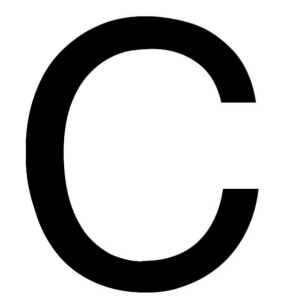
- Podcast Features
-
Monetization
-
Ads Marketplace
Join Ads Marketplace to earn through podcast sponsorships.
-
PodAds
Manage your ads with dynamic ad insertion capability.
-
Apple Podcasts Subscriptions Integration
Monetize with Apple Podcasts Subscriptions via Podbean.
-
Live Streaming
Earn rewards and recurring income from Fan Club membership.
-
Ads Marketplace
- Podbean App
-
Help and Support
-
Help Center
Get the answers and support you need.
-
Podbean Academy
Resources and guides to launch, grow, and monetize podcast.
-
Podbean Blog
Stay updated with the latest podcasting tips and trends.
-
What’s New
Check out our newest and recently released features!
-
Podcasting Smarter
Podcast interviews, best practices, and helpful tips.
-
Help Center
-
Popular Topics
-
How to Start a Podcast
The step-by-step guide to start your own podcast.
-
How to Start a Live Podcast
Create the best live podcast and engage your audience.
-
How to Monetize a Podcast
Tips on making the decision to monetize your podcast.
-
How to Promote Your Podcast
The best ways to get more eyes and ears on your podcast.
-
Podcast Advertising 101
Everything you need to know about podcast advertising.
-
Mobile Podcast Recording Guide
The ultimate guide to recording a podcast on your phone.
-
How to Use Group Recording
Steps to set up and use group recording in the Podbean app.
-
How to Start a Podcast
-
Podcasting
- Podcast Features
-
Monetization
-
Ads Marketplace
Join Ads Marketplace to earn through podcast sponsorships.
-
PodAds
Manage your ads with dynamic ad insertion capability.
-
Apple Podcasts Subscriptions Integration
Monetize with Apple Podcasts Subscriptions via Podbean.
-
Live Streaming
Earn rewards and recurring income from Fan Club membership.
-
Ads Marketplace
- Podbean App
- Advertisers
- Enterprise
- Pricing
-
Resources
-
Help and Support
-
Help Center
Get the answers and support you need.
-
Podbean Academy
Resources and guides to launch, grow, and monetize podcast.
-
Podbean Blog
Stay updated with the latest podcasting tips and trends.
-
What’s New
Check out our newest and recently released features!
-
Podcasting Smarter
Podcast interviews, best practices, and helpful tips.
-
Help Center
-
Popular Topics
-
How to Start a Podcast
The step-by-step guide to start your own podcast.
-
How to Start a Live Podcast
Create the best live podcast and engage your audience.
-
How to Monetize a Podcast
Tips on making the decision to monetize your podcast.
-
How to Promote Your Podcast
The best ways to get more eyes and ears on your podcast.
-
Podcast Advertising 101
Everything you need to know about podcast advertising.
-
Mobile Podcast Recording Guide
The ultimate guide to recording a podcast on your phone.
-
How to Use Group Recording
Steps to set up and use group recording in the Podbean app.
-
How to Start a Podcast
-
Help and Support
- Discover
![Global Pacific Aerospace [2012] VSC 291](https://d3t3ozftmdmh3i.cloudfront.net/production/podcast_uploaded400/1884674/1884674-1559547405147-4c445e1b7b18.jpg)
“The Co paid too much for that helicopter!”
___
W and B were 50/50 shareholders in a Co that bought a helicopter for $1.6m. They were also the Co’s sole directors.
$1.12m of the purchase price was borrowed. W and some related entities gave a guarantee in respect of that loan.
The Co couldn’t make the payments. The lender caused the helicopter to be sold for a shortfall of ~$457K.
The lender sued W and their related entities for the shortfall.
Interestingly, the purchaser of the helicopter was a Co wholly owned and controlled by B, who had not given a guarantee.
W says B used his position with the Co to negotiate a lower price for the helicopter, breaching his directors duties. W sought to bring derivative proceedings to pursue this claim: [2]B applied to wind up the Co on the just and equitable basis: [3]
B claimed that W excluded them, treated the Co as their own, breached duties in buying the helicopter for an inflated price and failing to maintain it, and failed to manage the Co’s obligations to the Co’s lender: [5]
W said B’s claim was an attempt by B to protect themselves from the derivative claim and, as there was no money, a liquidator would not chase B for B’s breach of DDs: [8]
The Co had no ongoing business. Its sole assets were claims against B, W, and the lender: [9]
The Court considered it would be just and equitable to wind up the Co because: (i) it is being sued by a secured creditor, (ii) the dirs’ relationship has broken down, (iii) each dir alleges the other has breached DDs with evidence from both showing neither’s claim is frivolous: [11]
The Court considered preferable course was for an independent liquidator to be appointed to investigate all claims and noted “liquidators commonly find a way to obtain funding if there is a potentially good cause of action available to the company”: [12]
The Co was wound up on the just and equitable ground: [13]
More Episodes
Create your
podcast in
minutes
- Full-featured podcast site
- Unlimited storage and bandwidth
- Comprehensive podcast stats
- Distribute to Apple Podcasts, Spotify, and more
- Make money with your podcast
It is Free
- Privacy Policy
- Cookie Policy
- Terms of Use
- Consent Preferences
- Copyright © 2015-2026 Podbean.com





